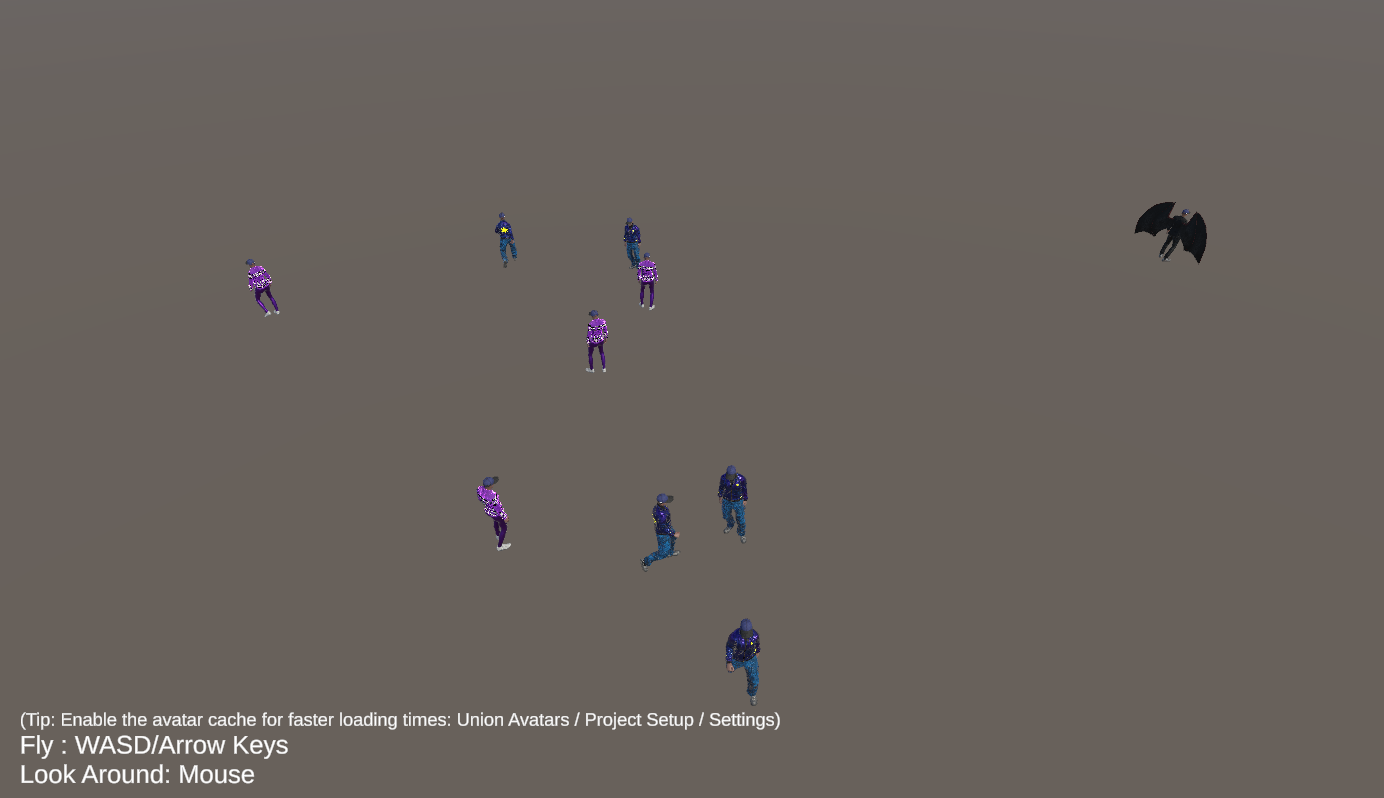NPCs
info
You can import this example in the Package Manager window
Managing Samples
In this example we will import multiple avatars.
First, open the Avatar NPC Example scene. You can find it in:
NPC Avatars → Scenes
The NPC Loader

The Avatar Importer prefab allows to import and spawn a playable avatar by using our API.
| Variable | Description |
|---|---|
| Username | Union Avatars account user |
| Password | Union Avatars account password |
| Organization | Your organization ID |
| NPC Count | How many npcs to draw in scene |
| Spawn Radius | How far can NPCs spawn from the origin of the scene |
| NPC Animator | The animator controller of the avatar |
Don't have an organization id?
Please request access here: Union Avatars Subscription
If you fill the variables and press Play, you should be able to see your last created avatars move and fly around freely!

Code walkthrough
Open NPCLoader.cs
csharp
csharp